-
 Bitcoin
Bitcoin $116400
-0.36% -
 Ethereum
Ethereum $4033
3.40% -
 XRP
XRP $3.302
-1.26% -
 Tether USDt
Tether USDt $1.000
-0.02% -
 BNB
BNB $796.1
1.67% -
 Solana
Solana $177.8
1.89% -
 USDC
USDC $0.9999
0.00% -
 Dogecoin
Dogecoin $0.2314
4.09% -
 TRON
TRON $0.3381
0.14% -
 Cardano
Cardano $0.7989
1.22% -
 Stellar
Stellar $0.4496
-1.84% -
 Chainlink
Chainlink $20.42
9.42% -
 Hyperliquid
Hyperliquid $41.17
0.88% -
 Sui
Sui $3.914
3.77% -
 Bitcoin Cash
Bitcoin Cash $584.7
1.52% -
 Hedera
Hedera $0.2632
-0.54% -
 Avalanche
Avalanche $24.09
3.40% -
 Ethena USDe
Ethena USDe $1.001
-0.02% -
 Litecoin
Litecoin $123.2
1.33% -
 Toncoin
Toncoin $3.318
-0.04% -
 UNUS SED LEO
UNUS SED LEO $8.984
-0.05% -
 Shiba Inu
Shiba Inu $0.00001323
2.85% -
 Uniswap
Uniswap $10.90
4.41% -
 Polkadot
Polkadot $3.999
3.34% -
 Dai
Dai $1.000
0.01% -
 Cronos
Cronos $0.1630
9.64% -
 Bitget Token
Bitget Token $4.484
0.82% -
 Monero
Monero $272.4
2.44% -
 Pepe
Pepe $0.00001173
6.03% -
 Aave
Aave $290.8
2.88%
How to view historical transaction records on Gate.io?
To access your Gate.io transaction history, log in, navigate to "Account" or "Transactions," and use filters like date range and type to find specific trades or activities.
Mar 31, 2025 at 07:56 am
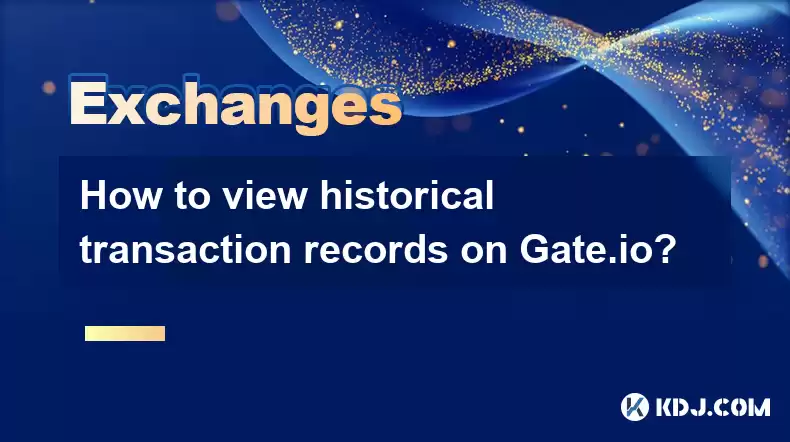
Accessing Your Gate.io Transaction History
Gate.io, like other cryptocurrency exchanges, provides a detailed history of all your transactions. Understanding how to access and interpret this information is crucial for managing your crypto assets effectively. This guide will walk you through the process of viewing your historical transaction records on Gate.io. This includes both spot trading and other activities like deposits and withdrawals.
First, you need to ensure you're logged into your Gate.io account. If you haven't already, navigate to the Gate.io website and enter your credentials. Once logged in, finding your transaction history is straightforward.
Locating the Transaction History Section
The location of your transaction history might vary slightly depending on the website's design updates. However, it's generally easily accessible. Look for a section labeled "Account," "Transactions," "Trade History," or something similar in the main navigation menu. Clicking on this will usually take you to a page displaying your transaction history.
Navigating Your Transaction History Page
Once you're on the transaction history page, you'll see a detailed list of your past activities. Each entry typically includes the following information:
- Transaction Date and Time: This indicates when the transaction occurred.
- Transaction Type: This specifies whether it was a buy, sell, deposit, withdrawal, or other activity. This is crucial for categorizing your financial activity.
- Trading Pair: If it's a trade, this shows the pair of cryptocurrencies involved (e.g., BTC/USDT).
- Amount: The quantity of cryptocurrency involved in the transaction.
- Price: The price per unit at which the transaction occurred.
- Fee: Any fees associated with the transaction.
- Total: The total value of the transaction, including fees.
Pay close attention to the 'Total' column to track your overall profit or loss. You can usually sort this data by date, type, or amount, making it easier to find specific transactions.
Filtering and Searching Your Transaction History
Gate.io's transaction history page usually offers filtering and search options to refine your results. These features are incredibly helpful for locating specific transactions within a large dataset. You might be able to filter by:
- Date Range: Specify a start and end date to narrow down the transactions displayed.
- Transaction Type: Select specific transaction types, like "Buy," "Sell," "Deposit," or "Withdrawal."
- Trading Pair: Focus on transactions involving specific cryptocurrency pairs.
Using the search bar, you can search for specific transaction IDs or keywords related to the transaction. This is particularly useful if you're looking for a specific trade.
Understanding Different Transaction Types
It's important to understand the different types of transactions you might see:
- Spot Trading: These are your typical buy and sell orders on the spot market.
- Margin Trading: Transactions related to margin trading will be clearly labeled.
- Futures Trading: Transactions from futures contracts will also have a distinct label.
- Deposits: These show cryptocurrency deposits into your Gate.io account.
- Withdrawals: These show cryptocurrency withdrawals from your Gate.io account.
Understanding the difference between these transaction types is vital for accurate record-keeping. Each transaction type will have specific details relevant to that type of activity. For example, a withdrawal will include the recipient address.
Downloading Your Transaction History
Many exchanges allow you to download your transaction history for record-keeping or tax purposes. Look for an option to download your data, usually in CSV or Excel format. This downloaded file will contain all the information displayed on the transaction history page. Regularly downloading your transaction history is recommended for security and record-keeping.
Troubleshooting Common Issues
If you encounter any problems accessing or understanding your transaction history, here are some troubleshooting steps:
- Check your internet connection: Ensure you have a stable internet connection.
- Clear your browser cache and cookies: Sometimes, cached data can interfere with website functionality.
- Try a different browser: If the issue persists, try accessing Gate.io using a different web browser.
- Contact Gate.io support: If you're still unable to access your transaction history, contact Gate.io's customer support for assistance.
Frequently Asked Questions
Q: What if I can't find a specific transaction?
A: Use the search and filter options on the transaction history page. If you still can't find it, contact Gate.io support.
Q: How long does it take for a transaction to appear in my history?
A: The time it takes for a transaction to appear varies depending on the transaction type and network congestion. Spot trades usually appear instantly, while deposits and withdrawals may take some time to process and reflect.
Q: Can I download my transaction history?
A: Yes, Gate.io usually allows you to download your transaction history in CSV or Excel format. Look for a "Download" or "Export" option on the transaction history page.
Q: What if I see an incorrect transaction?
A: Contact Gate.io support immediately to report the error. Provide them with all relevant information about the transaction.
Q: Are my transaction records secure on Gate.io?
A: Gate.io employs various security measures to protect user data, but it's always recommended to regularly review your transaction history for any unauthorized activity.
Disclaimer:info@kdj.com
The information provided is not trading advice. kdj.com does not assume any responsibility for any investments made based on the information provided in this article. Cryptocurrencies are highly volatile and it is highly recommended that you invest with caution after thorough research!
If you believe that the content used on this website infringes your copyright, please contact us immediately (info@kdj.com) and we will delete it promptly.
- Maxi Doge Presale: The Meme Coin That's Pumping Iron and Prices!
- 2025-08-09 19:10:11
- Rare Coin Warning: Don't Get Fooled by That 1p Coin!
- 2025-08-09 18:50:12
- Cardano, Unilabs, and Tron Price: Decoding the Latest Crypto Buzz
- 2025-08-09 18:30:12
- Aerodrome Finance: Price Targets and the Bullish Channel - What's Next?
- 2025-08-09 18:50:12
- BlackRock and the Crypto ETF Landscape: No XRP (Yet!), But What's Next?
- 2025-08-09 19:10:11
- Rare Coin Frenzy: eBay Sees 2p Coin Listed for Over £2K!
- 2025-08-09 18:55:11
Related knowledge
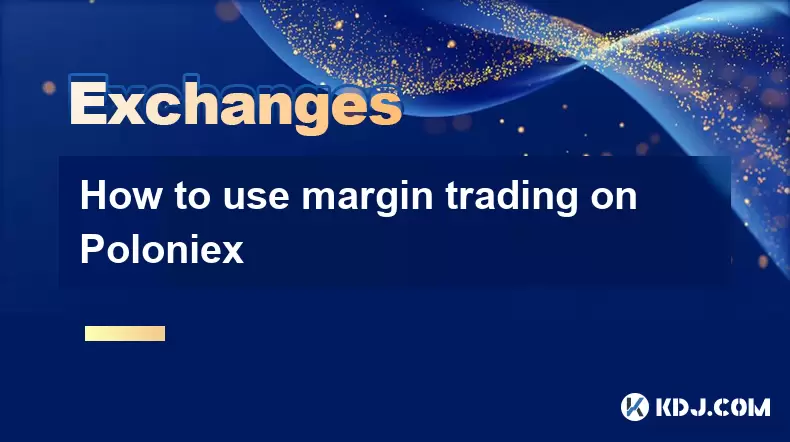
How to use margin trading on Poloniex
Aug 08,2025 at 09:50am
Understanding Margin Trading on Poloniex
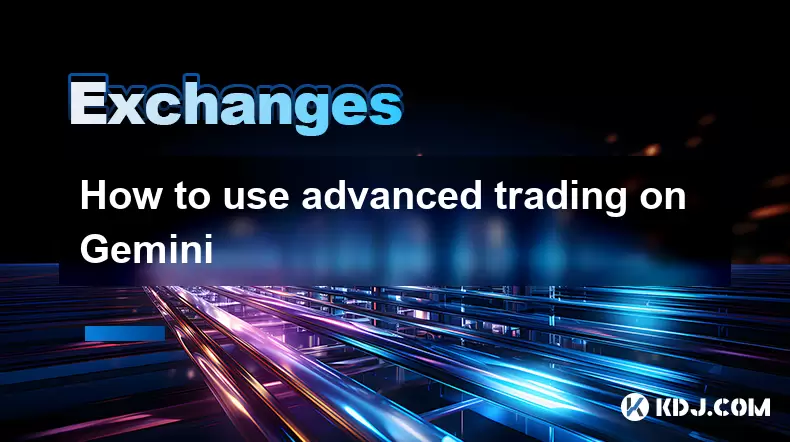
How to use advanced trading on Gemini
Aug 08,2025 at 04:07am
Understanding Advanced Trading on GeminiAdvanced trading on Gemini refers to a suite of tools and order types designed for experienced traders who wan...
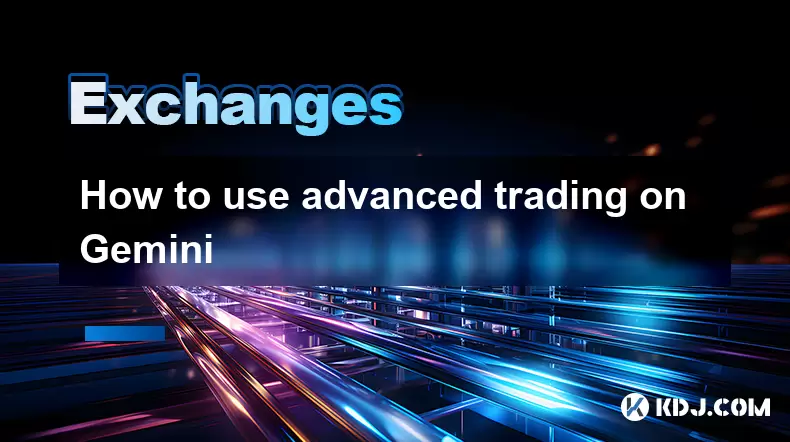
How to use advanced trading on Gemini
Aug 08,2025 at 10:56pm
Understanding Advanced Trading on GeminiAdvanced trading on Gemini refers to the suite of tools and order types available on the Gemini ActiveTrader p...
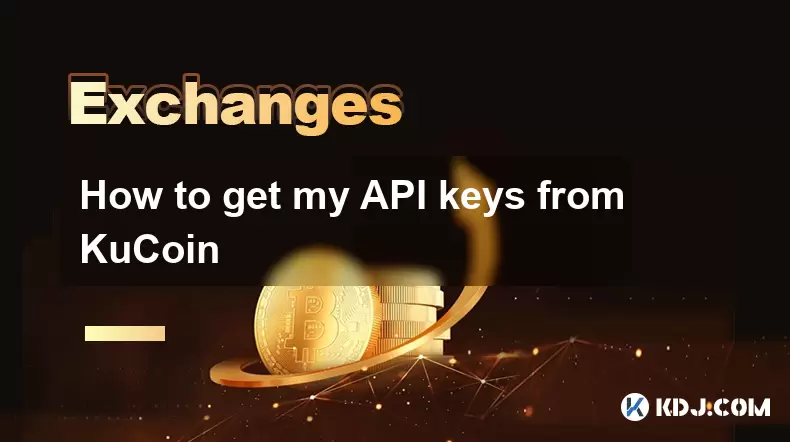
How to get my API keys from KuCoin
Aug 08,2025 at 06:50pm
Understanding API Keys on KuCoinAPI keys are essential tools for users who want to interact with KuCoin's trading platform programmatically. These key...
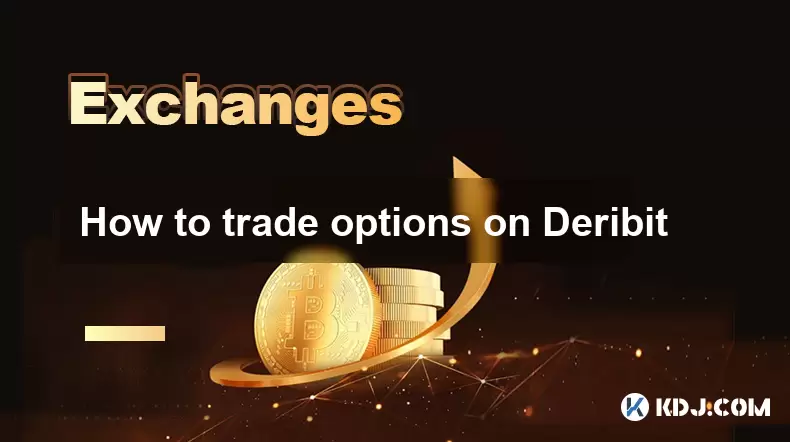
How to trade options on Deribit
Aug 09,2025 at 01:42am
Understanding Deribit and Its Options MarketDeribit is a leading cryptocurrency derivatives exchange that specializes in Bitcoin (BTC) and Ethereum (E...

How to deposit USD on Bitstamp
Aug 07,2025 at 05:18pm
Understanding Bitstamp and USD DepositsBitstamp is one of the longest-standing cryptocurrency exchanges in the industry, offering users the ability to...

How to use margin trading on Poloniex
Aug 08,2025 at 09:50am
Understanding Margin Trading on Poloniex

How to use advanced trading on Gemini
Aug 08,2025 at 04:07am
Understanding Advanced Trading on GeminiAdvanced trading on Gemini refers to a suite of tools and order types designed for experienced traders who wan...

How to use advanced trading on Gemini
Aug 08,2025 at 10:56pm
Understanding Advanced Trading on GeminiAdvanced trading on Gemini refers to the suite of tools and order types available on the Gemini ActiveTrader p...

How to get my API keys from KuCoin
Aug 08,2025 at 06:50pm
Understanding API Keys on KuCoinAPI keys are essential tools for users who want to interact with KuCoin's trading platform programmatically. These key...

How to trade options on Deribit
Aug 09,2025 at 01:42am
Understanding Deribit and Its Options MarketDeribit is a leading cryptocurrency derivatives exchange that specializes in Bitcoin (BTC) and Ethereum (E...

How to deposit USD on Bitstamp
Aug 07,2025 at 05:18pm
Understanding Bitstamp and USD DepositsBitstamp is one of the longest-standing cryptocurrency exchanges in the industry, offering users the ability to...
See all articles

























































































